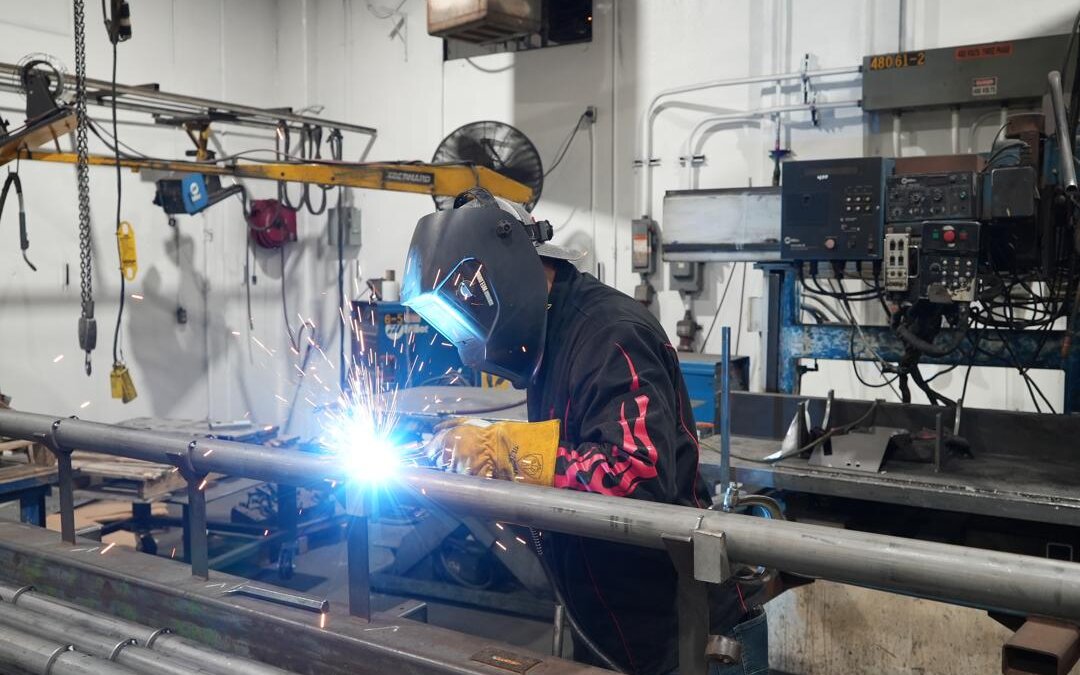Welding is a skilled trade that combines art and science to create, join, and repair metal structures. For high school students interested in pursuing a welding career, the right educational foundation is essential. Specific courses can provide the knowledge and skills necessary to excel in welding, paving the way for further training and certification. This article explores four critical areas of study for aspiring welders: mathematics, science, and Career and Technical Education classes.
Mathematics
Mathematics is a fundamental part of welding, involving calculations for dimensions, angles, and material properties. High school students should focus on courses such as Algebra, Geometry, and Trigonometry to build a solid mathematical foundation.
Algebra: Algebraic equations are used in various welding applications, such as calculating material quantities and converting measurements. Understanding algebra helps welders make precise calculations, essential for accurate cuts and welds.
Geometry: Welding often involves creating and interpreting blueprints, which requires a strong grasp of geometric principles. Geometry helps students understand shapes, sizes, and spatial relationships between objects, which is crucial when working with different metal parts.
Trigonometry: Trigonometry is vital for advanced welding techniques, especially those involving complex angles and curves. Knowledge of trigonometric functions assists in setting up proper welding angles and ensuring the integrity of welded joints.
Science
Science courses provide an understanding of the physical properties and behaviors of metals, which is crucial for effective welding. Key subjects include Chemistry and Physics.
Chemistry: Chemistry courses help students understand the properties and reactions of different metals and alloys. This knowledge is essential for selecting the appropriate welding materials and techniques to prevent issues like corrosion and cracking.
Physics: Physics teaches the principles of heat, electricity, and force, all of which are integral to welding. Understanding how heat affects metal and the principles of electrical currents in welding machines enables welders to make informed decisions about their work.
Career Technical Education
Career and Technical Education is invaluable for aspiring welders, offering direct experience with welding equipment and techniques. High school students should take advantage of any available welding or industrial arts programs.
Welding Technology: Specific welding classes, if available, are ideal for gaining hands-on experience. These classes cover various welding processes, such as MIG, TIG, and arc welding, and teach safety practices crucial for working with high-temperature equipment and materials.
Industrial Arts: General industrial arts programs often include welding modules, providing a broader understanding of manufacturing and fabrication processes. These classes also emphasize the importance of safety and precision in all aspects of metalworking.
Drafting and CAD: These courses teach students how to read and create technical drawings and blueprints. Proficiency in CAD software is increasingly important in modern welding, where precision and the ability to visualize projects in three dimensions are critical.
Metalworking: Metalworking classes offer hands-on experience with tools and techniques used in welding. These courses cover cutting, shaping, and assembling metal parts, providing a practical understanding of the physical aspects of welding.
Preparing for a Successful Welding Career
At Chief Industries, we understand the importance of a solid educational foundation for aspiring welders. By focusing on mathematics, science, technical education, and hands-on shop classes in high school, students can develop the skills and knowledge necessary for a successful welding career. We offer training programs, apprenticeships, and career opportunities to support your journey in welding.
Explore the potential of a welding career with Chief Industries. Visit our website or contact our team to learn more about the educational paths and opportunities we provide. Start building your future in welding today.

